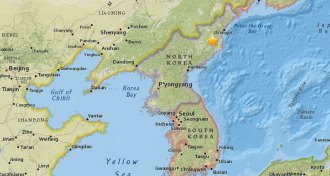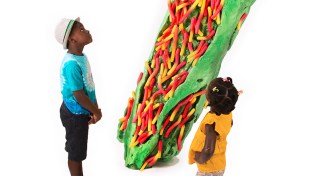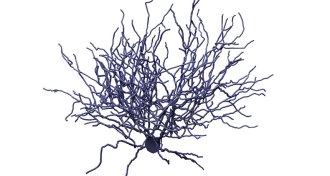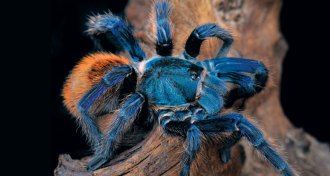All Stories
-
 Earth
EarthFive things science can (and can’t) tell us about North Korea’s nuclear test
North Korea’s claim about its recent nuclear bomb test isn’t entirely backed up by scientific evidence.
-
 Astronomy
AstronomyBlack hole burps up gobbled gas and dust
Two belches from a supermassive black hole are drifting away from another galaxy.
-
 Microbes
MicrobesGet to know your microbes at ‘The Secret World Inside You’
The American Museum of Natural History’s newest exhibit rehabilitates bacteria’s bad reputation and introduces visitors to the microbiome.
By Devin Powell -
 Animals
AnimalsSharks follow their noses home
Leopard sharks draw on scents to navigate back to shore, study suggests.
-
 Chemistry
ChemistryExperiment offers glimpse at how to make hydrogen metallic
A new phase of hydrogen could represent the stepping stone for transforming element 1 into a metal.
By Andrew Grant -
 Chemistry
ChemistryExperiment offers glimpse at how to make hydrogen metallic
A new phase of hydrogen could represent the stepping stone for transforming element 1 into a metal.
By Andrew Grant -
 Psychology
PsychologyKids grasp words as symbols before learning to read
Preschoolers grasp that written words refer to specific things before they learn to read.
By Bruce Bower -

-
 Astronomy
AstronomySupernova captured in quadruple comes back for an encore
A supernova that has already appeared four times is back for an encore.
-
 Health & Medicine
Health & MedicineHigh-intensity interval training has great gains — and pain
Intense spurts of activity followed by brief rest can improve heart health, blood glucose and muscle endurance. But some question if the pain of HIIT workouts will impede the popularity.
-
 Health & Medicine
Health & Medicine50 years ago, a promising agent pulled
DMSO was promised to cure everything from headache to the common cold. But human testing stopped in 1965.
-
 Animals
AnimalsWhen tarantulas grow blue hair
Azure coloring is surprisingly common in the spiders, though they themselves are colorblind.
By Susan Milius